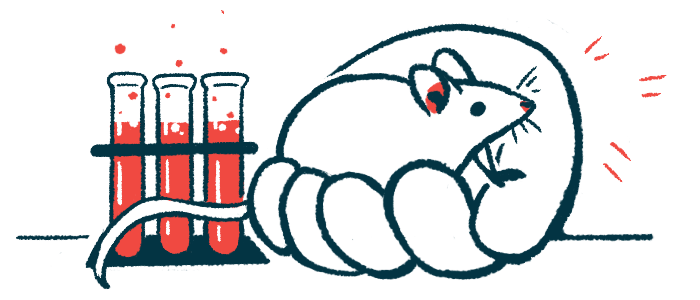HMI-104 led to therapeutic antibody production: Study
The PNH gene therapy candidate could lead to a one-time treatment

A single dose of Homology Medicines’ gene therapy candidate HMI-104 led to the sustained production of a therapeutic antibody to treat paroxysmal nocturnal hemoglobinuria (PNH), preclinical studies suggest.
“Given the severity of PNH, which is a rare, acquired blood disorder, and the unmet need associated with chronically administered available therapies, HMI-104 could provide an important new one-time approach,” Albert Seymour, PhD, Homology’s president and CEO, said in a company press release.
Data were presented as a poster titled, “Preclinical Studies with HMI-104, an AAVHSC Vectorized C5 Monoclonal Antibody, for the Treatment of paroxysmal nocturnal hemoglobinuria,” at the American Society of Gene & Cell Therapy 26th Annual Meeting, held May 16-20 in Los Angeles.
Most cases of PNH are caused by acquired mutations in blood stem cells, including those that give rise to oxygen-carrying red blood cells. Such mutations cause red blood cells to be erroneously primed for destruction, or hemolysis, by a part of the immune system called the complement cascade. This in turn can lead to anemia (low red blood cell counts) and other symptoms.
The condition is primarily treated with regular doses of complement inhibitor therapies that suppress complement activation by targeting complement proteins C5 or C3. Despite these treatments, breakthrough hemolysis still is common in PNH patients.
Therapy relies on use of modified, harmless adeno-associated virus vectors
Homology’s GTx-mAb platform is a gene therapy approach intended to elicit the sustained production of therapeutic antibodies in the body, bypassing the need for regular infusions of antibody-based therapies. Like other gene therapies, it relies on the use of modified, harmless adeno-associated virus vectors to be delivered to specific cells in the body.
HMI-104 is a GTx-mAb candidate designed to stimulate the sustained production of an antibody targeting C5 (C5mAb) in the liver. Administered by a single into-the-vein injection, its goal is to sustainably prevent complement activation and the loss of red blood cells, easing patient dependency on complement inhibitor therapies.
Researchers first conducted a 16-week dose range-finding study in immunocompromised mice (NOD SCID) that lacked mouse C5. Bloodstream C5mAb levels increased in a dose-dependent manner, with concentrations rising steadily through five weeks, then plateauing through 16 weeks.
Dose-dependent increases in the number of vector genomes in the liver also were observed, with stable levels reached after four weeks. These findings mirrored increases in the levels of the messenger RNA (mRNA) that carried instructions for making the C5mAb protein. The C5mAb generated was functionally active, as indicated by a significant reduction in hemolysis in additional experiments that used blood from HMI-104-treated mice.
A second dose range-finding study was conducted in a special breed of mice modified to grow human liver cells (FRG KO) and produce human C5. One-time HMI-104 led to dose-dependent increases in C5mAb in humanized liver cells in the presence of C5.
Increases in vector genome and mRNA levels in human liver cells were also dose-dependent. C5mAb generated in the presence of human C5 actively prevented hemolysis at all doses and time-points tested in experiments using blood from HMI-104-treated FRG KO mice.
“Antibody levels achieved in FRG KO mice were greater than or equal to those obtained at steady state in the NOD SCID mouse model,” the team wrote.
“These results support the development of HMI-104 … for the treatment of PNH and complement-mediated disorders,” the researchers wrote. “HMI-104 aims to provide, with a single [into-the-vein] treatment, sustained serum C5mAb sufficient to inhibit C5 complement-mediated lysis and reduce breakthrough and residual intravascular hemolysis associated with insufficient C5 antibody levels in PNH patients.”








